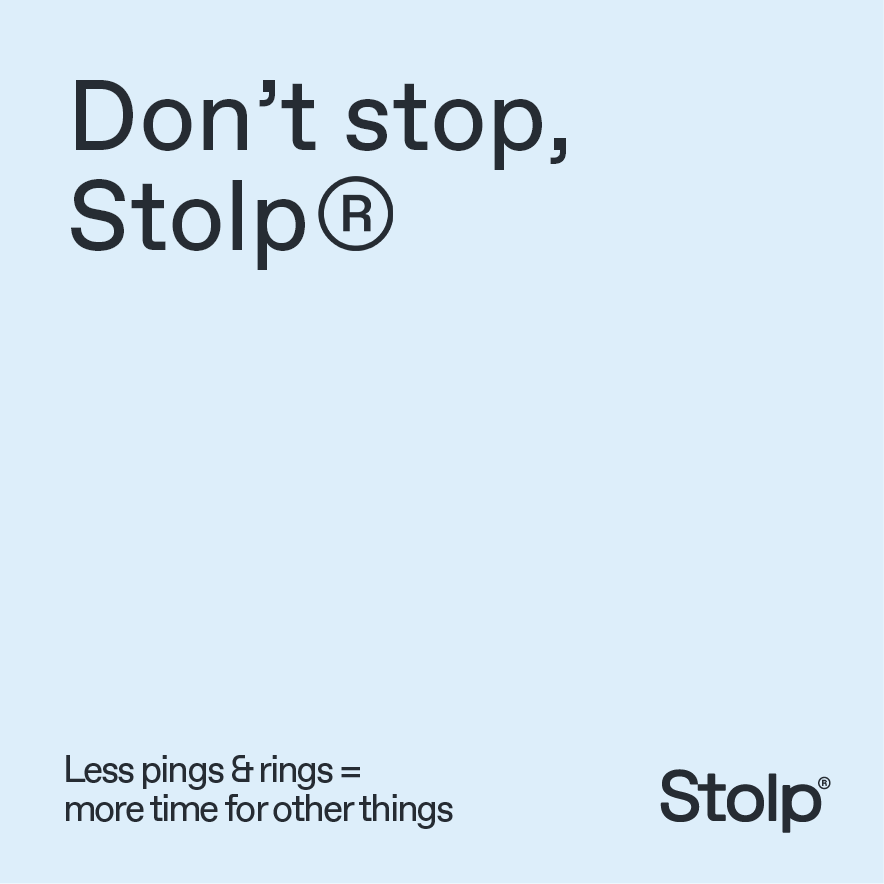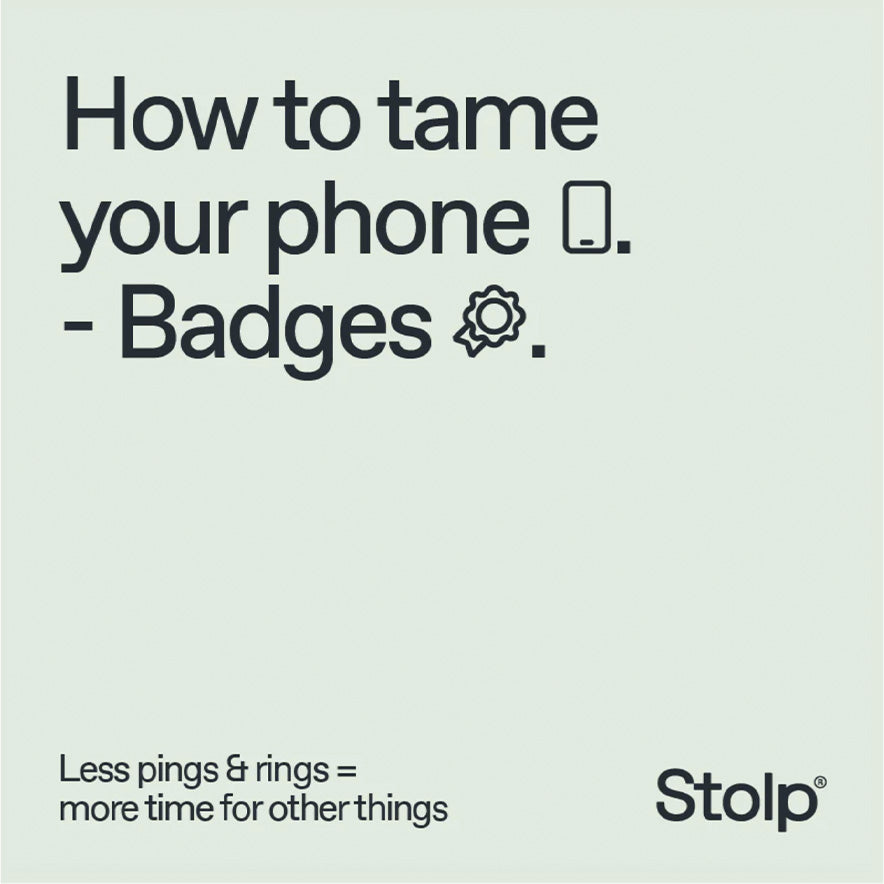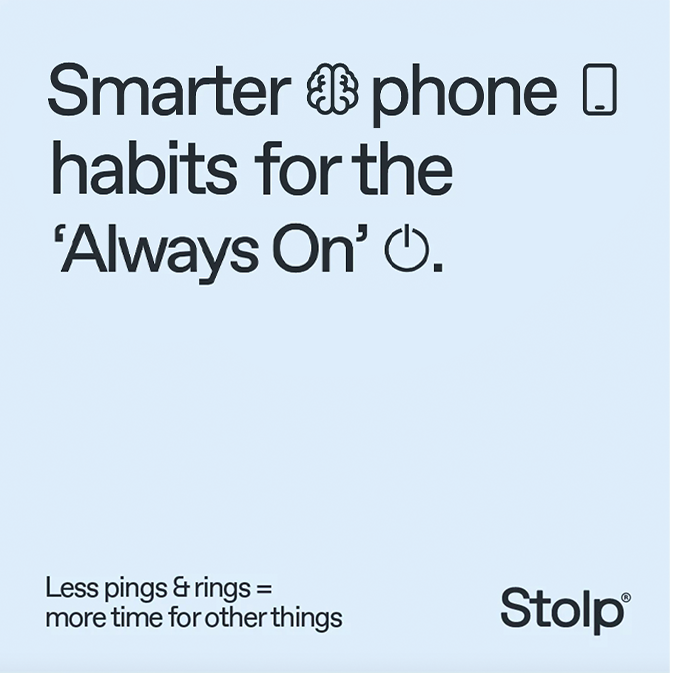Smarter phone habits for the always on
"It's just about self discipline" is an argument that usually comes up in the debate around phone distractions, implying that resisting the urge to pick up and browse through your phone is basically a matter of your good intentions and your own willpower to stick to them.
The research points out that human beings are wired quite differently in fact. Extensive studies by Roy Baumeister revealed the scientific truth about willpower: we humans have a daily finite amount of it. And the more we use it, the more it depletes.
So sure, not blinking at your phone during breakfast sounds easy. But by the time it's dinner, resisting a quick peak at your mail inbox or grabbing a cookie from the jar has become incredibly more difficult for that brain of yours.
The point here we're trying to make is clear: primarily relying on 'willpower' to succeed on the good intentions around improved phone behaviour is, neurologically speaking, kind of a lost battle in the long run. What's key, is adding smart routines and rituals to the mix. Smarter phone habits that allow you minimise the amount of willpower you'll need to focus your attention on what's important away from your screen.
Location over motivation
50% of our brain's capacity is allocated to sight. As humans we're hugely driven by what we see.
Thus what you see, is what you do, and eventually what you'll get.
Surround -or don't- yourself with the things that'll unload the required willpower to fight bad or drive good behaviour. A few examples from other corners of life:
- Want to eat healthier? Keep that cookie jar on the highest kitchen shelf (or don't get it in the house as a matter of fact).
- Want to work out more? Hang your workout gear in sight next to your bed.
Out of sight, (makes it so much easier to keep it) out of mind. And you guessed it: the same goes for the inverse.
You need to think about smartphone routines in the same way. Studies have shown that merely having a phone in sight reduces our cognitive ability to focus. Once you get over the initial FOMO (that's 'fear of missing out') of the decision to go fully offline, having your phone out of sight is a proven way to stick to your intention, and as a bonus it helps you stay in a so-called 'deep work' or 'flow' state.
Think outside the box
Phones are purposely designed to be used as much as possible. There's alot of books out there that detail how mobile apps are designed in order to keep us hooked as well as on the business model of the attention economy.
Most of our phone apps are simultaneously competing for big chunks of your attention. Digital tools for smarter phone habits live on that same screen and thus face fierce competition. It's almost like trying to start a diet when you're in the middle of the candy store.
There's a bunch of great digital wellbeing and productivity apps out there. Just keep in mind though, they exist only by virtue of the exact medium (the 'screen') that is designed to be addictive in the first place. You could say it's kind of a catch-22.
We suggest you looking in addition for more effective habit-improving tools that only fit outside a 13' screen. Things that are purposely designed to live off-screen and help you get there too.
No holy grail
We can honestly say there's no 'holy grail' tactics when it comes to phone habits. Just like anything in life worth going for, there's no magic pill or quick fixes. Just like working out or maintaining a healthy diet, you just have to put in the work. Try to put in the effort, figure out what works and doesn't for you. And don't be too hard on yourself.
Less is more
Small times consistency equals change. Don't try to hit it big on your first swing.
Dropping from 6 hours screen-time to living completely off-the-grid in a day is not the way to go. And frankly not necessary. Be realistic about your intentions and pragmatic about your routines. A better approach might be to start cutting down on social media by bringing it back to scheduled time blocks for social media twice a day.
In summary
- Out of sight = out of mind: place your phone somewhere you can't see it.
- Of course, make sure you don't get drawn to your phone unless for stuff you categorize as important.
- It's personal. What works for you, might not help for someone else and vice versa. Keep on experimenting and keep in mind change is an ongoing process.
- Make it a topic of conversation with your environment. Not really the right time to 'get social' but nothing holds you back to ask friends what they do to improve their screen balance. Be inspired.
- Small things done consistently yield more results than one-offs. Sure, try a 48 hours without the screen to experience what your brain and stress feels like without the phone. But over the long run, small things done consistently are your way forward. Create habits and routines - after your digital detox - to stay on track and not to fall back into your old habits after a week.
- Create visual reminders: hang a quote next to your bedside table if that's the place, or where you brush your teeth. Or use Stolp as a visual reminder to your good intention not to be always connected (and go offline with just one gesture, and benefit from 'out of sight, out of mind'..



